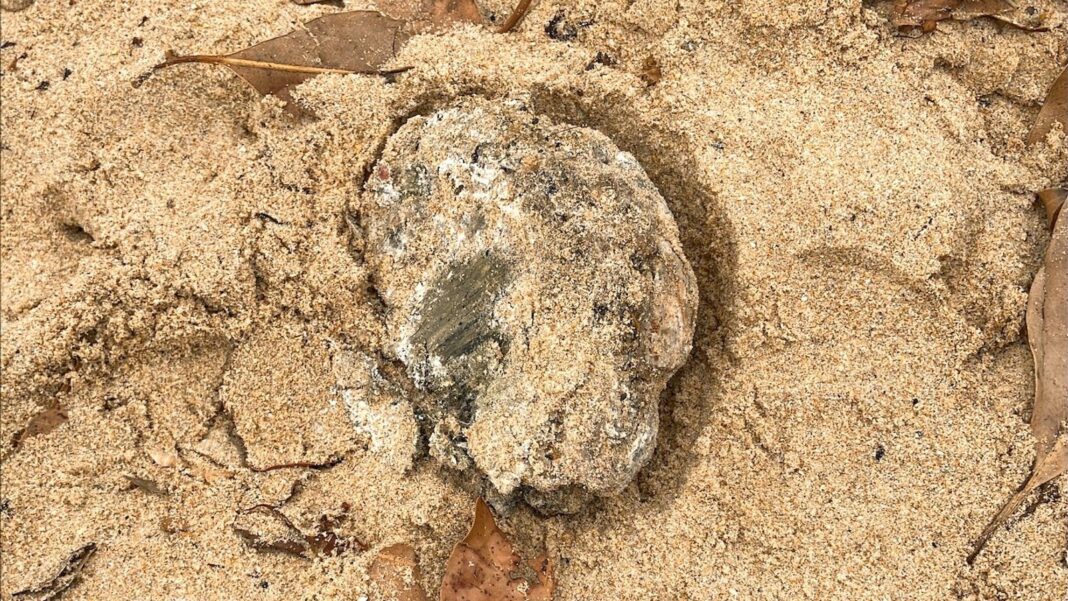Tests on the “mysterious balls” which led to the closure of several Australian beaches last week have revealed they were made up partially of faecal bacteria.
Nine beaches in Sydney were closed by authorities on 14 January after white-grey, ball-shaped debris washed up along the shore.
The Northern Beaches Council, which described the debris as marble-sized balls, organised their safe removal before reopening the beaches to the public.
The council said in an update on Tuesday that its analysis had indicated the presence of hydrocarbons and saturated fatty acids, along with faecal coliforms and E-coli.
Some of the debris picked up by council workers. Pic: Northern Beaches Council
It also said the Environmental Protection Authority was analysing its own samples of the debris.
Officials said they would continue to monitor the beaches and urged anyone who finds more debris to avoid handling it and report it to council lifeguards.
Read more from Sky News:
Dangerous winds to hit UK
Trump pardons 6 January rioters
At least 66 dead in hotel fire
It comes after around 2,000 black balls washed ashore in Sydney in October last year, leading to seven beaches being closed.
They were initially believed to be tar balls, formed when oil comes into contact with debris and water, often as a result of oil spills or seepage.
The objects were later revealed to contain fatty acids, chemicals consistent with those found in cleaning and cosmetic products, mixed with some fuel oil.







